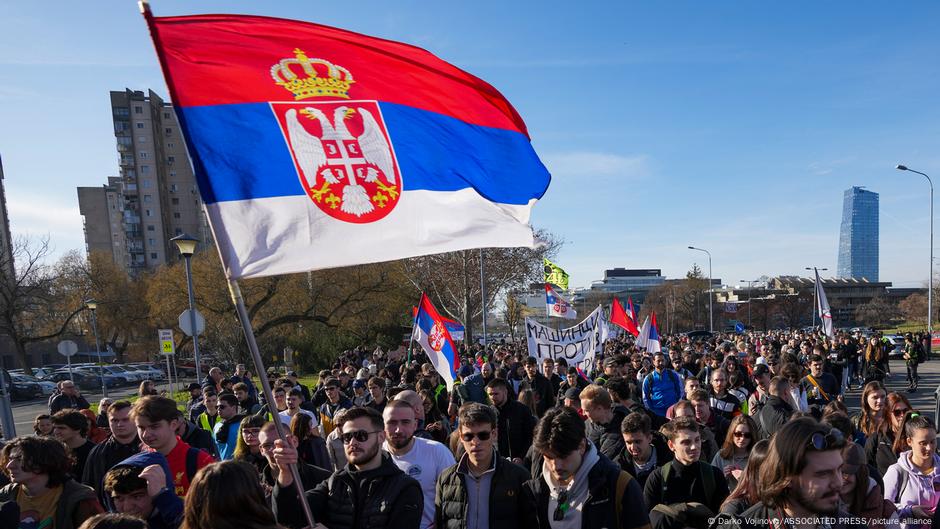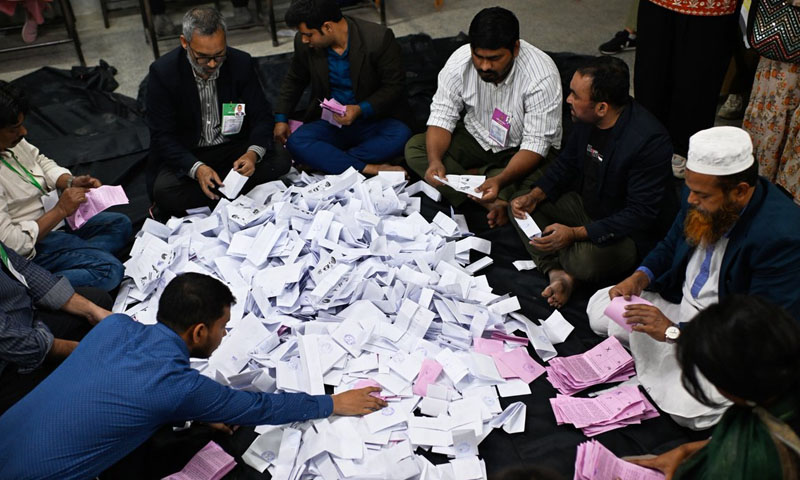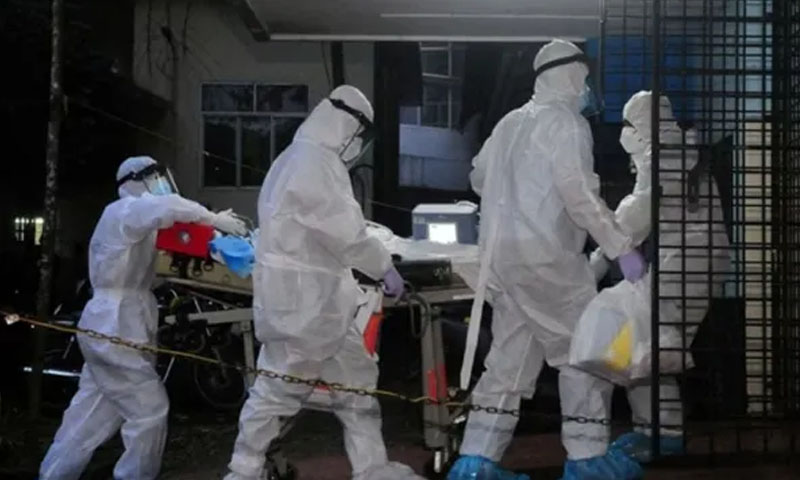- Web
- Today
Serbia’s students gear up for massive protest in Novi Sad
-

- DW
- Feb 01, 2025

NOVI SAD: Despite two high-profile political resignations, students plan to walk from Belgrade to Novi Sad and block all three bridges over the Danube River on Saturday. They are calling for justice and accountability.
The University of Belgrade is still in upheaval.
Read more: Serbia: Tens of thousands join student-led protests in Belgrade
Just days after their 24-hour blockade of a major traffic intersection in the Serbian capital, students at the university have begun their latest protest: an 80-kilometer walk to Novi Sad.
Once they arrive in the country’s second-largest city, they will join forces with the students from the local university and take part in a massive protest in memory of the 15 people who were killed when the canopy at the entrance to the city’s station collapsed exactly three months ago, at 11:52 a.m. on November 1.
At least 400 students will be making the two-day march to Novi Sad in northern Serbia.
One of the students taking part is Petar Gardovic, who is studying at the Faculty of Political Sciences at the University of Belgrade. Gardovic told DW that he was not at all apprehensive. In fact, he said, he was certain that it wouldn’t be too taxing to walk 40 kilometers a day for two days, especially given the motivation behind the march.
“All we are asking for is something that should be a matter of course in every normal state: that anyone who beats somebody up — and anyone who kills — should be held accountable for their actions; that those who are responsible are named and that everyone must bear the consequences of their actions or transgressions,” he said.
The march will be escorted by people in vehicles supplying the students with food, water and medicine.
The students intend to walk during the day and spend the night outdoors at the football stadium in the town of Indjija, which is about halfway between Belgrade and Novi Sad.
Attacks and resignations
On Monday, high-ranking representatives of the government declared at a press conference that all the students’ demands had been met and called on citizens to remain calm.
But just a few hours later, students who were posting stickers calling for new protests were attacked by a group of young men who came out of the building that houses the offices of the ruling Serbian Progressive Party, the SNS.
The next day, Serbian Prime Minister Milos Vucevic and Novi Sad Mayor Milan Djuric resigned.
President Aleksandar Vucic announced that a decision would be made in the next 10 days as to whether the ruling coalition would nominate a new prime minister or call a snap parliamentary election.
“The state is tolerant and patient, but that doesn’t mean other people’s lives can be destroyed,” said Vucic, adding that the main task of the state is to preserve stability in society.
“Nothing can be achieved by force,” he added. “Or maybe it can, but before that happens, someone must commit a crime. You’ll have to kill me, otherwise I won’t accept it.”
But the president’s words have obviously had no effect on the students. They are planning to block all three bridges across the Danube River in Novi Sad for 24 hours, starting Saturday.
Organisers expect students from all over the country to attend, as well as university lecturers, teachers and elementary and high school students, many of whom did not go to class in recent days in a show of support for the students.
Farmers in their tractors and groups of motorcyclists have already made their way to Novi Sad. In the meantime, several high-profile figures in Serbia have used social media to encourage people to join the demonstrations.
Would a snap election break the deadlock?
Serbia is in the middle of a profound political crisis. But would a snap election provide a way out of the current impasse?
Those citizens who oppose the government have said they will only stop protesting when the students’ demands have been met, and the conditions for free and fair elections are guaranteed.
The Center for Research, Transparency and Accountability (CRTA), an independent, nonpartisan NGO that seeks to foster democratic culture and civic activism in Serbia, has been monitoring elections in the country for years.
“Serbia must solve numerous irregularities and systemic problems in order to create the conditions necessary for fair elections,” said CRTA program director Rasa Nedeljkov, something he says the powers that be in Serbia are not interested in.
“We have brought a whole series of charges, all of which have just ended up in a drawer somewhere,” Nedeljkov told DW. These charges related to accusations of vote buying, of the exertion of pressure on civil servants and of crimes relating to the registration of voters.
“First of all,” said Nedeljkov, “we have to make sure that the institutions of the Serbian state are willing, that the district attorneys and the judiciary are willing, to enforce the law, thereby sending a clear message to all those involved in the election process that breaches of the law will not be tolerated.”
Nedeljkov said the minimum requirements that must be met by the state to ensure free elections are press freedom, equal opportunities for all in the election campaign and an up-to-date electoral register. However, he added, it’s hard to say how long it will take for all this to happen in Serbia.
Opposition boycott possible
This is why most opposition parties have already said they would not take part in elections at the present time.
They are calling for the students’ demands to be met and for the formation of a transition government that would be tasked, among other things, with paving the way for free elections.
“We will not approve Aleksandar Vucic’s manipulations and cosmetic measures,” said Radomir Lazovic, lawmaker for the Green–Left Front party.
Lazovic told DW that the opposition is demanding a transition government that “really guarantees that it will start to disempower the Serbian Progressive Party.”
The ruling SNS has thus far rejected the formation of such a transition government. It would also appear that the international community is not exerting any pressure on Serbia’s long-term leadership to do so.
Serbian authorities that are run by the SNS boast of the support they feel they have not only in the East, but also in the West. Both Russia and the United States have made clear expressions of support for Vucic and his government.
Serbia is a candidate country for the European Union. So far, however, the EU has only said it “will continue to monitor these developments closely.”
Read more: Serbian president hints at snap election after PM quits
“As a pro-European party that is of the opinion that EU accession is the most important strategic decision regarding Serbia’s future direction, I have to say that I am deeply disappointed and dissatisfied with the EU’s current official stance on Serbia,” said Lazovic. “I call on the EU to change its policy of support for Aleksandar Vucic and to stand on the side of Serbia’s citizens, who are calling for justice.”




